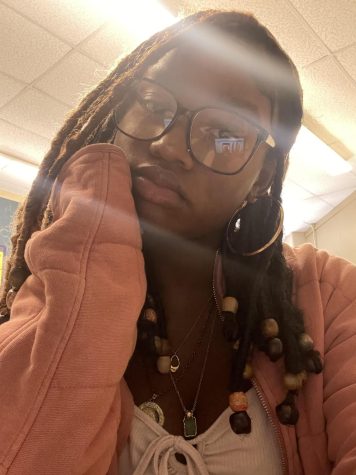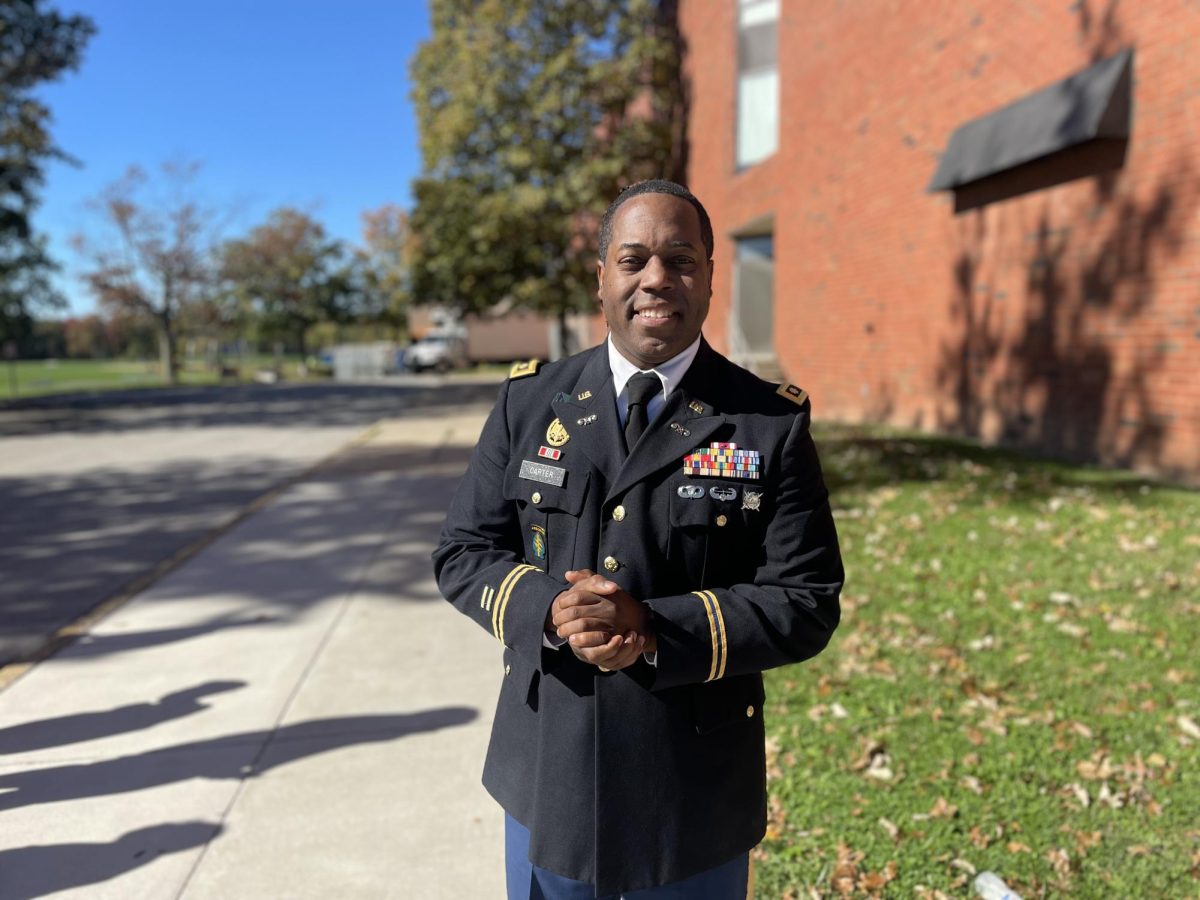The Sands of Time Fall at Theatre Horizon: ‘Sandblasted’ Reviewed
Theater Review

Jessica Johnson stars as Odessa in the Theatre Horizon production of “Sandblasted”
June 2, 2023
Nobody has enough time, yet as humans, we tend to take the time we do have for granted constantly. But the loss of time is a hard concept to grasp and can cause people to fall apart. Charly Evan Simpson’s play “Sandblasted,” playing at Theatre Horizon in Norristown from May 10 to June 4, does a remarkable job of capturing that idea and gives the audience a physical representation of how the lack of time can break us apart.
The play begins with two women, Angela and Odessa, waking up in a desert shaking off what seems to be sand. Quite abruptly, Odessa’s arm falls off in a dramatic scene that keeps the audience both frightened and intrigued. Angela also admits that she’s falling apart, so for the first few scenes, I was confused about exactly what was going on because the strange situation in which the girls find themselves is not explained. But then the play begins a series of flashbacks that takes us back to the present, giving the audience a peek into what it’s like to feel like your life has a time limit on it.
The first flashback begins when Angela shows up to an info session, looking for help from a woman named Ada, a guru who claims to know how to keep people from falling apart. Her brother, Jamal, played by Aaron Bell, seems to be taking the fact that his sister is “turning to sand” very lightly and is insensitive to her struggle, and that may be because he’ll never be in her shoes. The pressure that these black women undergo throughout the play is totally disregarded by Jamal, a possible symbol of all black men who do not understand what Black women go through. Ada never arrives at the info session, which almost defeats the purpose of the whole scene, but this inconvenience is just more proof that easy answers won’t always show up in situations in which you are losing yourself.
We are then taken to a scene in which Odessa, the other young woman from the beginning, first meets Angela at a beach. Odessa is in a bikini, blasting her music, whereas Angela is doing the complete opposite, fully clothed wearing a huge backpack. Angela comments on Odessa’s boldness, saying she’s “brave” for wearing something so revealing in such dangerous times. Oddesa’s seemingly calm and free character is a great balance and was surprisingly compatible with Angela’s light bubbly personality. Both Jessica Johnson, who plays Odessa, and Morgan Charéce, who plays Angela, perform exceptionally on stage throughout the rest of the play; they are like two peas in a pod, helping each other through hardships and forming an almost sister-like bond.
Charéce’s performance as Angela is especially immaculate. Filled with both vibrance and vulnerability, her character brings the humor that was needed. She also has a heart-touching line saying that has stayed with me: “There’s nothing else to fall apart on the outside, so we’ll start falling apart on the inside.” Her acting is filled with not only character but so much emotion, and it was truly special to watch a girl who’s falling apart bring so much positivity to such a deep play.
The girls search for Ada, portrayed by Zuhairah, in hopes that she’ll keep them from falling apart. Once they find her, they depend on her like a sort of role model, hoping she will give them the answers to not falling apart. The way they immediately clung to this stranger stood out to me. They assumed that she was whole within herself and spent all their time following her routines. However, something this play brings to light is the fact that people depend on activities and distractions such as going vegan, doing yoga, and eating healthy to keep them from feeling less complete, whether these activities actually work or not. The girls’ faith in Ada seems to play that role as well.
Throughout the whole play, Ada’s character comes off as extremely carefree. She evidently takes life as it is and comes to terms with the person she had aged to be. On the other hand, Angela and Odessa do the exact opposite, spending their time worrying about the amount of time they have left before they fall apart. The fact that Ada is so accepting of the world around her makes her seem like a role model, but in all reality, she had no answers to give the two girls.
This is the type of play that you have to break down to understand. A lot of aspects feel irrelevant at first but end up coming back later or symbolizing something way deeper. I’d recommend “Sandblasted” to anyone who loves watching perspective-changing art about intense topics. This profound play will leave you with so many questions, but the point is to realize you’ll never have all the answers. “Sandblasted” holds so much meaning once you take the time to uncover it.


